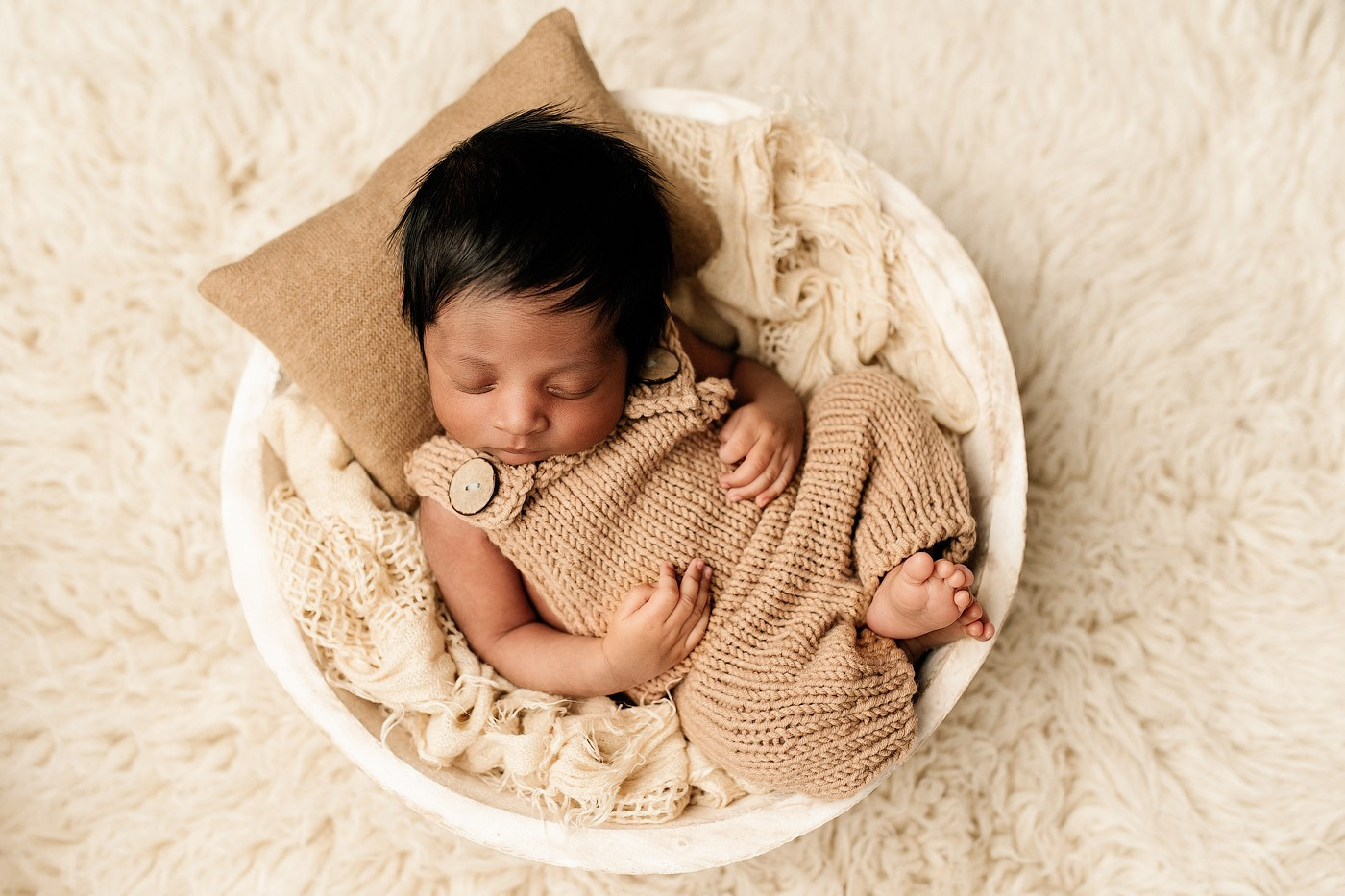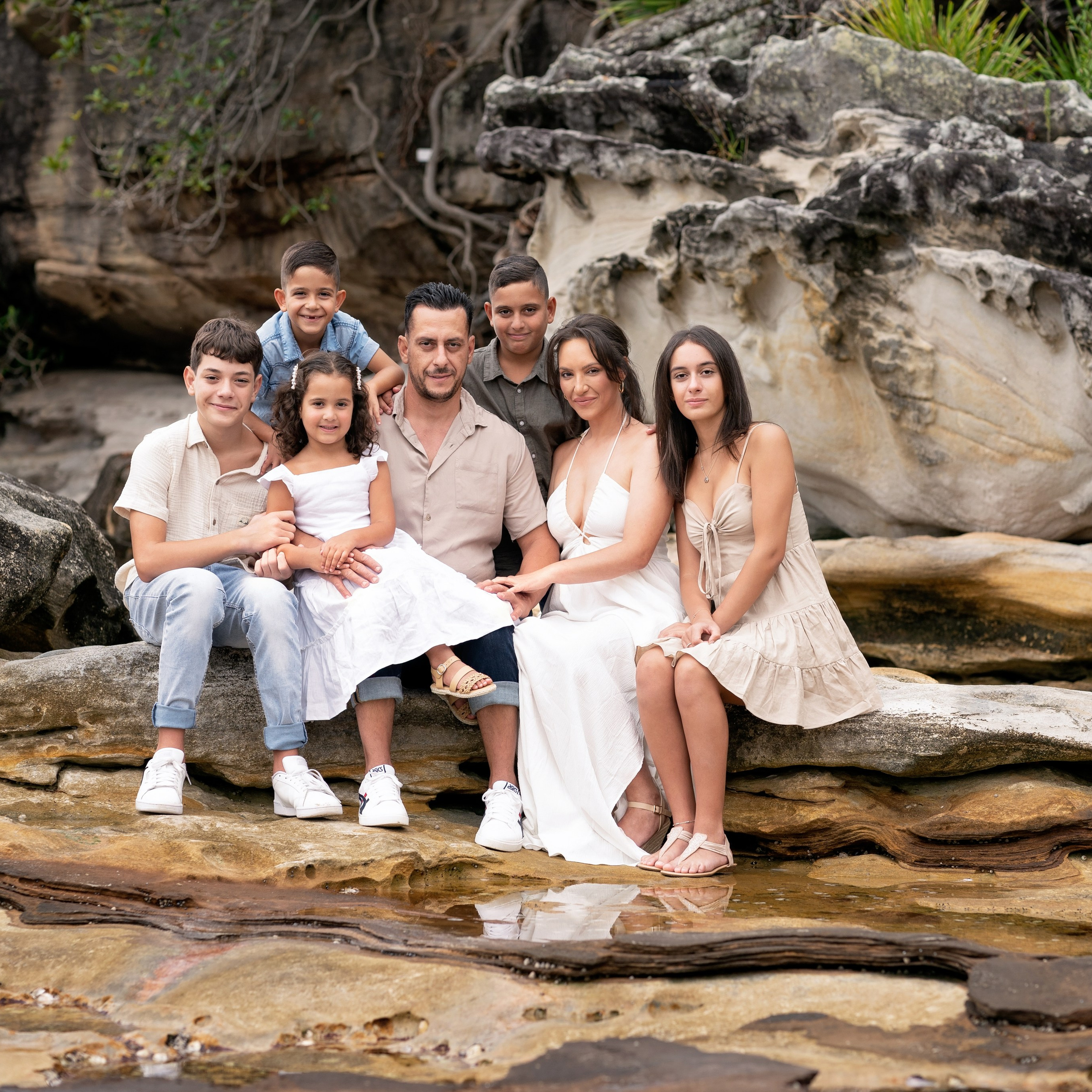Newborn sleep
Newborns typically sleep around 16 hours in a 24-hour period, in short bursts throughout the day and night. When they’re awake, they’re usually feeding, and playtime is very brief. After feeding, they often want to go back to sleep. Their sleep cycle includes periods of deep sleep and light sleep, each lasting about 40 minutes. If they wake up after this time, they might need help settling back to sleep. Babies can become overtired if they’ve been awake for more than 1-2 hours, showing signs such as pulling at ears, closing fists, jerking arms, leg movements, yawning, arching backward, or sucking on fingers.


Body language
When I first handle your baby, I place them gently in my lap and observe their responses. Babies use body language to tell us what they need. Over the years, I’ve learned to understand these subtle cues, ensuring your baby feels safe and comforted throughout our session.
Overstimulation
Overstimulation happens when a baby is overwhelmed by too many experiences, sensations, noise, and activity. This often occurs after visits with lots of family members where the baby is passed around for cuddles. Overstimulated newborns can become cranky or tired, crying more with jerky movements, clenched fists, and waving arms or kicking. Creating a calm environment with minimal sound can help an overstimulated baby settle down. Additionally, soothing music can be used to help your little one calm down and ease into sleep. Sometimes, simply allowing them to rest and settle into their natural sleep pattern is all they need.


Colic
Colic involves long bouts of unexplained crying, which some believe is due to stomach pain from wind, while others think it’s natural behavior caused by overstimulation. Reducing stimulation can help soothe a colicky baby. Gentle patting or rocking might also provide comfort.
Crying
Crying is your baby’s way of communicating their needs and feelings. They might cry because of their temperament, sleep cycles, or feeding patterns. Studies show that babies cry and fuss for almost three hours a day on average, mostly in the late afternoon and evening. Sometimes, they cry because they’re in pain or discomfort. My experience allows me to quickly recognize these signs and adjust accordingly to ensure your baby’s comfort.

My Commitment to You
The information shared here is based on my experience. It should not be taken as medical advice.
Thanks to all my clients for entrusting me with capturing these precious moments with their newborn babies.
With warmest regards,
Alla xx
Blog

Cute baby Lukah

4 month old baby

Newborn studio session for baby Avyaan

Cake smash session for a beautiful Elora

Lifestyle Newborn Photography

Baby milestone sesion

Rustic cake smash session for twins!

Peter rabbit cake smash session for baby Agaazveer







